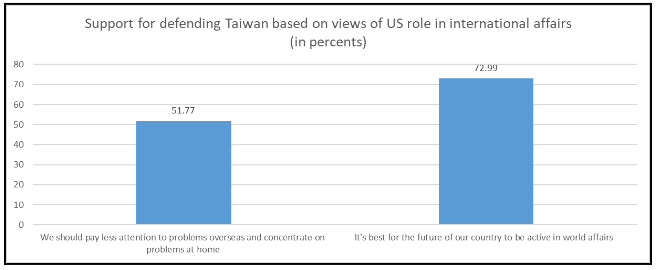We have quantum theory to thank for “Schröedinger’s Cat,” a thought experiment involving a box that is said to contain a radioactive atom, a container of poison, and a cat. In the experiment, the animal is said to be both alive and dead until the box is opened and the cat’s condition is confirmed one way or the other. Unfortunately, the same can be said of the status of abortion rights in Taiwan—that it is both legal and illegal because the procedure is governed by two very different, contradicting laws. So, while Taiwan has staked out a progressive position regarding LGBTQ+ rights, it cannot say the same about its more complex social attitudes and laws regarding women’s reproductive rights.
In Taiwan, abortion is allowed under specific conditions specified by the Genetic Health Act (優生保健法), but it is penalized under Articles 288, 290, and 292 of the Criminal Code (中華民國刑法). Under the Genetic Health Act, legal abortions can be performed under six conditions. These conditions include:
- If a pregnant woman is diagnosed with a genetic, infectious, or psychiatric disease;
- If the pregnancy threatens the life of the mother;
- If the fetus might be exposed to toxic substances that could cause birth abnormalities;
- If the pregnancy is a result of rape or sexual abuse;
- Or, if the pregnancy has the potential to affect a woman’s mental health.
However, at the same time the Criminal Code makes it illegal for a woman to perform an abortion, for a doctor to give one, or for a partner to instigate one—with current penalties ranging from NTD 3,000 to 15,000 (roughly USD 100 to 500), depending on severity of the offense. Article 292 even makes it illegal for anyone to advertise abortion services—warning of both jail time and a fine as penalties.
Taiwan’s conflicted relationship with abortion is a long-standing one. Chen Chao-Ju (陳昭如), distinguished professor at the National Taiwan University (國立臺灣大學) and director of its Center for Human Rights and Jurisprudence (國立臺灣大學法律學院法理學與人權研究中心), points out that even as far back as the 1890s, the procedure was outlawed by the Japanese colonial government (which had modeled its legal system under existing French and German systems of the time). There were penalties not just for the women who got abortions, but also for those who performed them (although Chen believes the penalties were not strictly enforced, since available records show that just 16 abortions were reported between 1908 and 1943).
That ban survived Japan’s retrocession of Taiwan to the Kuomintang (KMT, 國民黨) government in 1945 at the close of World War II, and it remained in place until 1969—a year that marked a turning point in Taiwan’s reproductive legal framework. That year, a population control-related policy enacted under the Executive Yuan (行政院) allowed for abortions to be performed—but only when a pregnant woman was at risk of passing on any “genetic diseases, hereditary insanity, or infectious diseases” to her fetus. Abortions were also made available to women who already had three children. In short, it could be carried out “to control the quality and quantity of (Taiwan’s) population,” which had experienced exponential growth in the 1950s. This particular law remained in place until the passage of the Genetic Health Act (優生保健法) in 1984 and its promulgation one year later. The Act was first known in English as the Eugenics and Health Protection Law, and its Chinese name still contains the word “eugenics” (優生).
Given the traditional, patriarchal nature of Taiwan society, abortion’s primary usage as a population control tool should not be surprising. Well before 1949, Taiwan’s attitudes toward women were shaped by Confucianism, and then by Japanese norms, which characterized women as the family’s primary caregivers. Even though World War II opened doors for women in the workforce, women were still largely viewed as being beneath men in status. As a result, women were restricted largely to lower-paying job fields such as education, factory and transport work, and food service.
While many civil rights were restricted by the KMT regime after the declaration of martial law in 1949, Yang Chia-Ling (楊佳羚) of the Graduate Institute of Gender Education at National Kaohsiung Normal University (國立高雄師範大學 性別教育研究所) points out that it was after this that women were allowed to vote and given compulsory access to education. That, in turn, raised literacy levels for women and gave them access to better jobs—even though they experienced workplace discrimination and inferior pay in comparison to their male counterparts. The greatest advancements in women’s rights in Taiwan occurred after 1987, when laws protecting women against domestic violence, sexual assault, and workplace harassment were enacted, and these laws remain in place today.
Unfortunately, even as women’s civil rights have progressed, their reproductive rights have remained largely static. Since 1987, the Genetic Health Act has been amended just once. This occurred in 2009, when women were finally “allowed” to obtain abortions without prior consultation—and the consent of—a husband or a male relative. Before that, a married woman looking to get an abortion needed to obtain her spouse’s “consent”—unless the man in question was unconscious or not of sound mind. In 2019, Christian groups tried to push for a referendum on abortion rights which would have banned abortions for a fetus of eight weeks or older. A year later, in 2020, conservative groups also tried to call for a mandatory six day “consideration period” before an abortion could be performed. Most recently, the Ministry of Justice (MOJ, 法務部) came under fire in 2024 for proposing larger fines for “illegal abortions”—i.e., those performed under the circumstances laid out in the Criminal Code. Instead of looking to abolish the controversial articles, Ministry of Justice officials indicated that they wanted to raise monetary penalties involving abortions to between NTD 500,000 and 1 million (USD 17,000-33,000). The proposals were eventually withdrawn just days after they were made public, following intense opposition from women’s advocacy groups including the Awakening Foundation (婦女新知基金會).
Another one of the groups opposing the proposals is Taiwan Women’s Link (台灣女人連線), which has also accused the Ministry of Justice of violating the United Nations Convention on the Elimination of All Forms of Discrimination against Women (CEDAW). Because Taiwan is not a member of the United Nations, it has not signed CEDAW, but it still upholds it. Moreover, CEDAW calls for abortion to be decriminalized altogether. In a social media statement, Taiwan Women’s Link questioned the Ministry of Justice’s ability to respect women’s bodily autonomy, and accused the government of using the Genetic Health Act to pretend that abortion had been decriminalised—when that was in fact, not the case. The women’s advocacy group also pointed out that there are only four countries which have tightened anti-abortion laws: Nicaragua, Poland, El Salvador, and the United States.
The presence of laws restricting abortion in the Criminal Code also does not sit well with lawyer and abortion rights activist Audrey Lu (陸詩薇), who explained that the law sends a very disturbing message to women. In my conversation with Lu for International Community Radio Taipei, the women’s rights lawyer surmised that while the law might have been intended to protect the rights of the fetus and the pregnant woman, the message conveyed by the MOJ is that abortion is a crime. Instead of passing amendments, Lu pointed out that the Ministry of Justice should have decriminalized abortion altogether: “These abortion related laws, are very seldom used these days… so what is the whole point [of their existence]?”
Because of Taiwan’s rapidly declining birth rate, the abortion issue has unfortunately become linked to a bigger social concern: falling birth rates means fewer young people entering into the workforce, filling classrooms, building up the country’s social safety net—and enlisting in the army. This makes issues surrounding the birth rate and abortion into national security concerns.
Tying childbearing to national security will not incentivize women to have more children. Instead, Lu encouraged Taiwan’s lawmakers to view the issue of abortion and birth rate as part of a greater issue—one related to outdated norms regarding patriarchy. “One key issue that lawmakers and policymakers need to understand is that for many women in Taiwan today, it is almost a consensus that marriage—especially after having children—leads to a decline in their quality of life,” she said. “This is largely due to deep-rooted social and cultural expectations that place the burden of caring for not only children but also husbands and even in-laws primarily on women. This fundamental issue is why more and more women choose not to have children.”
Lu added: “If the government wants to increase birth rates, cultural and societal paradigm shifts are essential. Simply restricting abortion rights is unlikely to achieve this goal. Instead, policies should focus on creating a social environment where women do not feel that having children will automatically lead to a significant loss of personal freedom, career opportunities, and overall well-being.”
Additionally, Lu stated: “If Taiwan truly wants to encourage childbirth, the key is not restricting abortion but ensuring that having children does not mean sacrificing a woman’s quality of life.” This is a call echoed by women’s groups like Taiwan Women’s Link, which again used social media to point out that “The choice of abortion is an exercise of women‘s physical autonomy, which can be regulated or restricted, but should not be criminalized. The crime of artificial abortion only punishes women who have an unwanted pregnancy, but not men who have sex with this woman and cause an unwanted pregnancy. This is clearly a difference in the treatment of women, which is one of the reasons why CEDAW…pointed out that national criminal laws should no longer cover women who have abortions.”
Unless and until abortion ceases to be a part of population policy and is treated as part of women’s rights to bodily autonomy, Taiwan’s women are not likely to be convinced that the state has their best interests in mind. As Lu pointed out, until women are treated with dignity and not merely as vessels for childbearing, the bigger problem involving birth rates is unlikely to be resolved.
The main point: Taiwan’s current abortion laws are contradictory and originate out of patriarchal systems that view abortion as a tool of population control. While Taiwan’s low birth rate is admittedly a national security concern, criminalizing abortion will not help motivate Taiwanese women to have more children. Instead, the Taiwanese government should prioritize policies that treat women with respect and ensure that a woman’s quality of life does not decrease after giving birth.




